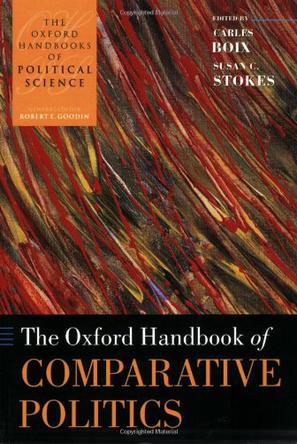Review
"This comprehensive work...provides a thorough and contemporary examination of the field of comparative politics and various central questions within it...there is more than enough material here (including detailed references) to keep scholars and bring graduate students completely up to date; indeed the analyses are often cutting edge. Lastly, inasmuch as this handbook series aspires to shape the discipline and not just describe it, many chapters in this handbook usefully conclude with a precise outline of the future research agenda as seen by the author."--Politics Studies Review
"Two visionary editors--who see clearly where research in comparative politics is heading--and a star-studded cast of authors who are acknowledged masters of their fields make this Oxford Handbook an accurate compass for those who wish to be brought to the frontiers of comparative research."--David D. Laitin, James T. Watkins IV and Elise V. Watkins Professor of Political Science at Stanford University
Product Description
The Oxford Handbook of Comparative Politics offers a critical survey of the field of empirical political science through the collection of a set of chapters written by 48 top scholars in the discipline of comparative politics. Part I includes chapters surveying the key research methodologies employed in comparative politics (the comparative method; the use of history; the practice and status of case-study research; the contributions of field research) and assessing the possibility of constructing a science of comparative politics. Parts II to IV examine the foundations of political order: the origins of states and the extent to which they relate to war and to economic development; the sources of compliance or political obligation among citizens; democratic transitions, the role of civic culture; authoritarianism; revolutions; civil wars and contentious politics. Parts V and VI explore the mobilization, representation and coordination of political demands. Part V considers why parties emerge, the forms they take and the ways in which voters choose parties. It then includes chapters on collective action, social movements and political participation. Part VI opens up with essays on the mechanisms through which political demands are aggregated and coordinated. This sets the agenda to the systematic exploration of the workings and effects of particular institutions: electoral systems, federalism, legislative-executive relationships, the judiciary and bureaucracy. Finally, Part VII is organized around the burgeoning literature on macropolitical economy of the last two decades.
《牛津比较政治学手册》由来自哈佛大学、耶鲁大学、杜克大学、普林斯顿大学、斯坦福大学等世界著名大学近50位比较政治学领域的专家合著而成,绝大多数撰稿人都是活跃在美国比较政治学研究第一线的代表性学者。
 The Oxford Handbook of Comparative Politicstxt,chm,pdf,epub,mobi下载
The Oxford Handbook of Comparative Politicstxt,chm,pdf,epub,mobi下载 首页
首页



初中生最应该看的
不同的观点!
还没看
很多历史的细节。